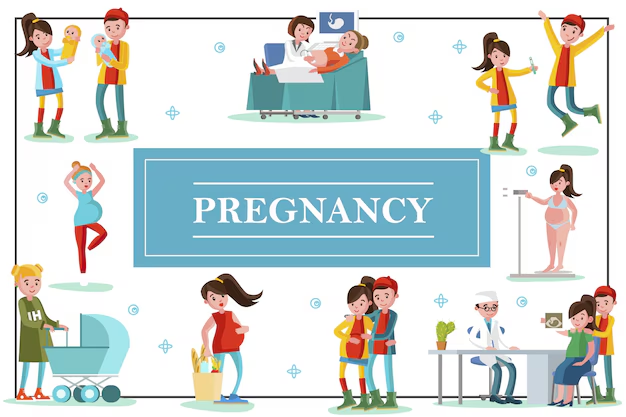Step-by-Step Approach to Boosting Fertility and Getting Pregnant

If you’re planning to get pregnant, understanding your fertility and making informed choices can significantly increase your chances. This comprehensive guide walks you through every step to take on your journey to conception, starting with understanding your fertility cycle and ending with when to seek professional help.
First, we break down the process of tracking ovulation, an essential tool for timing intercourse. Knowing when you’re ovulating is critical to increasing your chances of conception, and this article explains how to track it using Basal Body Temperature, Ovulation Predictor Kits (OPKs), and cervical mucus changes. By recognizing the signals your body sends during ovulation, you can optimize your chances each month.
In the next section, we focus on nutrition for fertility. Eating the right foods is not just about nourishing your body but also about creating the best conditions for reproductive health. From folic acid and vitamin D to iron and zinc, this article explains the best fertility-enhancing nutrients, as well as lifestyle habits that can help increase your fertility.
Exercise and weight management are another focus, as both play a significant role in fertility. Maintaining a healthy body weight is essential for regular ovulation and hormone production. We also explore the importance of avoiding toxins, including alcohol, tobacco, and excessive caffeine, which can negatively affect fertility.
Moreover, stress has a profound impact on fertility, which is why we provide strategies for managing it effectively. By adopting practices like mindfulness, yoga, and meditation, you can lower your cortisol levels, creating a more favorable environment for conception.
Lastly, the article covers the importance of fertility testing. If you have been trying to conceive for over a year without success (or six months if you’re over 35), it's important to seek professional medical advice. Fertility tests, such as blood tests to measure hormone levels, semen analysis for male fertility, and imaging techniques like ultrasounds for women, are essential in determining any underlying fertility issues.
Sections Included:
-
How to Track Ovulation for Better Timing
- Methods to track ovulation using BBT, OPKs, and cervical mucus.
-
Fertility Nutrition: What to Eat to Boost Conception Chances
- Nutrients, vitamins, and foods that support fertility.
-
Maintaining a Healthy Weight and Lifestyle
- The importance of exercise, weight management, and avoiding toxins for fertility.
-
Managing Stress for Optimal Fertility
- How stress affects fertility and techniques to reduce it, such as yoga and meditation.
-
When to Seek Professional Fertility Testing and Medical Advice
- The role of fertility tests and when to consult a fertility specialist.
Related Articles

Baby development at 31 weeks

Baby development at 1 week

A Comprehensive Journey to Conception: The Complete Guide to Getting Pregnant

he Best Time to Get Pregnant: Understanding Your Ovulation Cycle

Understanding Fertility and the Path to Conception

Baby development at 38 weeks

Fertility and Conception: A Comprehensive Guide to Getting Pregnant

Tracking your energy across the cycle